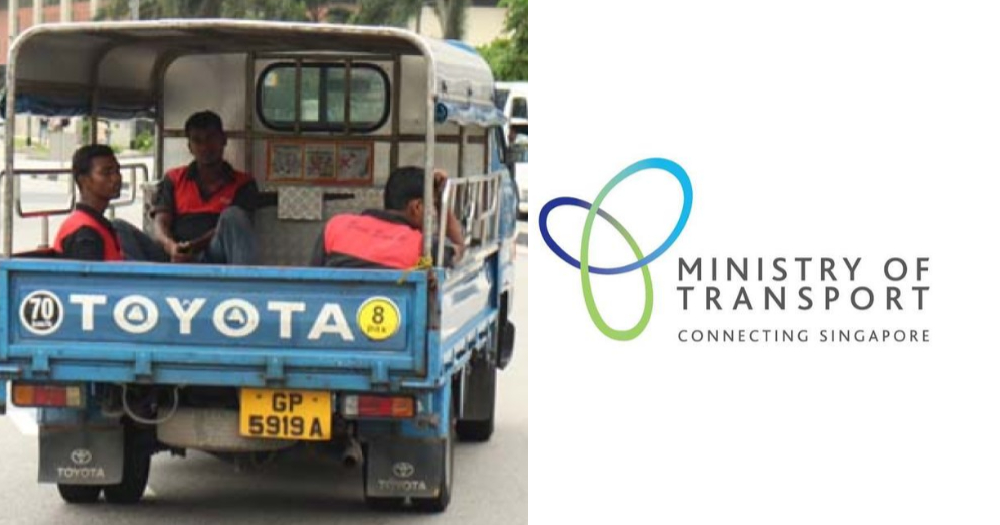A joint statement by several government agencies issued on Aug. 2 addressed recent calls to ban the transporting of workers on the back of lorries, acknowledging that while the practice was “not ideal”, a ban would affect not only businesses and employers, but also workers and the rest of society.
The joint statement, issued by the Ministry of Transport and several other industry associations, comes after both businesses and migrant worker rights advocates issued statements on the matter.
Recent ‘spate’ of lorry accidents left 37 people injured
Lorry accidents on Jul. 18 and 19 left 37 people injured, and prompted two statements by advocates calling for a ban on the transporting of workers on the back of lorries.
Published on Jul. 24 and 26, the two statements drew a total of 100 signatures.
On Aug. 1, 25 business organisations “reiterated [their] commitment to ensuring the safety and welfare” of workers, but also highlighted the “real, practical and operational complexities” involved and urged the government to consider any regulatory changes carefully.
Acknowledging the “the range of perspectives and challenges”, the government said that while they share “the objective of enhancing safety for every worker”, they also “understand the genuine concerns from employers”.
They noted that many companies, especially small and medium enterprises, still face cost and business concerns in the wake of the pandemic, and are doing their best to stay afloat while meeting deadlines.
In addition, structural and operational challenges, including the availability of other modes of transport, had to be considered as well.
The statement said buses might not be suitable for specialist trades, which involves transporting a small crew of workers together with equipment or goods to several different locations in a day.
They also mentioned how the shortage of bus drivers in Singapore, as seen in the school bus industry, was exacerbating the situation.
Imposing a ban, according to employers, would cause many companies to halt their business operations.
Knock-on effects: delays, higher costs, and unemployment
This would have “knock-on effects” on society, according to the statement, including delays affecting new housing projects, polyclinics, and MRT lines.
It could also cause higher costs for all Singaporeans -- employees, both Singaporean and migrant workers, would also risk losing their jobs if companies close down.
Recognising the challenges and trade-offs, the government said they encouraged companies and industry associations to work towards alternative transport arrangements for their workers, without removing the exception under the Road Traffic Act that allows for the transportation of workers on lorries.
The statement also mentioned how existing measures have improved safety and reduced the risk of workers.
This includes mandating that the front passenger cabin be fully occupied before the rear deck can be used to carry workers, as well requiring lorries transporting workers to be fitted with canopies and higher side railings.
Future measures, such as putting in place minimum rest time requirements for workers who double as lorry drivers, and installing speed limiters on all lorries, with MOM carrying out spot checks to ensure compliance, will also be implemented to further enhance safety.
Only 4% of accident injuries involve lorry passengers
The government said fatalities from road accidents involving lorry passengers have halved from 6 per year (2013-2017) to 3 per year (2018-2022), due to these measures.
The average number of injured persons onboard lorries has also reduced by about a third.
The statement also added that the government’s efforts will remain evidence-based and focus on improving safety for all road users.
In that regard, over the past five years, lorry passengers made up, on average, 4 per cent of the total annual injuries from road accidents, while motorcycles accounted for around 50 per cent on average.
The issue of transporting workers on lorries was raised in Parliament on Aug. 2 by Louis Ng, Member of Parliament for Nee Soon GRC, and was addressed by Amy Khor, Senior Minister of State for Transport.
Top photos from TWC2’s ItsRainingRaincoats video and MOT.
If you like what you read, follow us on Facebook, Instagram, Twitter and Telegram to get the latest updates.



